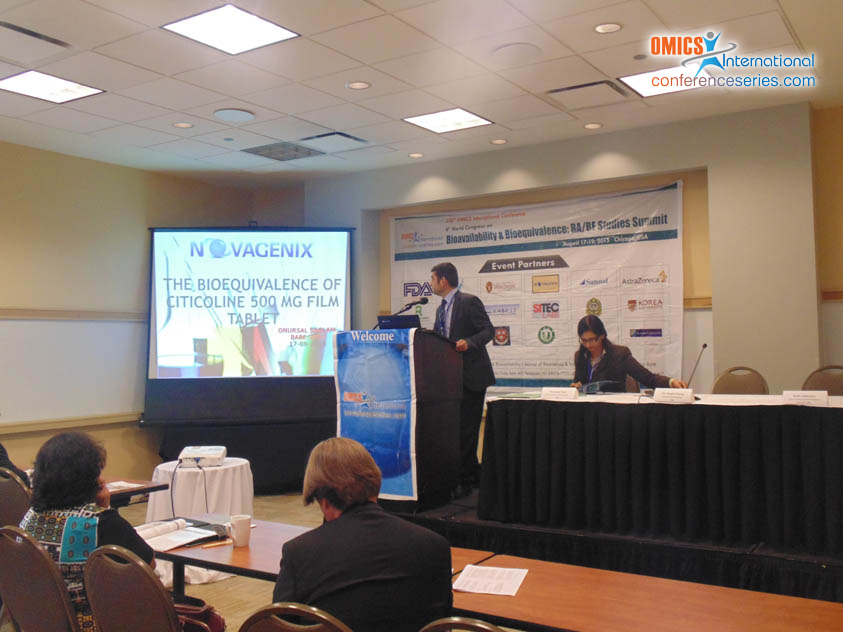
Onursal Saglam
Novagenix Biyoanalitik Ilac, Turkey
Title: The bioequivalence of Citicoline 500 mg film tablet
Biography
Biography: Onursal Saglam
Abstract
Citicoline is an essential intermediate in the synthesis of structural phospholipids of cell membrane. Citicoline is also related to acetylcholine metabolism (cholinergic action). Exogenously administered citicoline promotes rapid repair of injured cells in brain ischemia with two leading mechanisms: i) direct repair of neuronal membranes ii) reduced generation of free fatty acids. Also, citicoline downregulates phospholipases to avert apoptotic and necrotic cell death. Animal and clinical studies indicate the potential of citicoline to improve cognitive deficits, stroke rehabilitation, brain and spinal cord injuries, neurological diseases, and eye conditions. Citicoline is metabolized in the gut wall and liver. The byproducts of exogenous citicoline formed by hydrolysis in the intestinal wall are choline and cytidine. Following absorption, choline and cytidine are dispersed throughout the body, enter systemic circulation and cross the blood-brain barrier for re-synthesis into citicoline in the brain. However, in humans, plasma cytidine is converted to uridine, its circulating form, which is transformed in the brain to uridine diphosphate. The aim of the study was to evaluate the pharmacokinetics of citicoline for determining the bioequivalence, only a few methods have been publish which were only describing choline which is active metabolite of citicoline those were so far to be successful. The blood sampling was started from -48h for the clinical trial. The most feasible method was to determine the uridine levels and do base line correction for PK variables. At the end of study, the Cmax, AUC0-t and tmax had been achieved successfully.
Speaker Presentations
Speaker PDFs
Speaker PPTs Click Here

